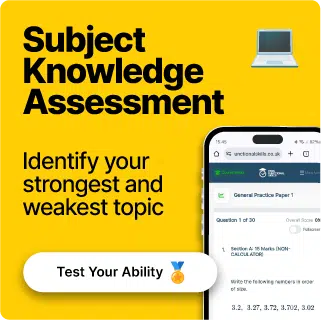Writing: The Exam
The Exam
You will need to understand what you will encounter in the exam.
This page will leave you feeling more prepared about the writing section!
Tips
You may be provided with a word count for each of the tasks.
The word count gives you a rough estimate of how much writing is expected for each question.
The time allowed on the front of the paper will also give you an estimate of the time you need to put in to each task.
For each task, there will also be an allocated set of marks:
- The marks hint at the amount of information needed in your answer.
- For example, if the question is 3 marks, usually 3 bits of information are needed.
Follow Our Socials
Our Facebook page can put you in touch with other students of your course for revision and community support. Alternatively, you can find us on Instagram or TikTok where we're always sharing revision tips for all our courses.
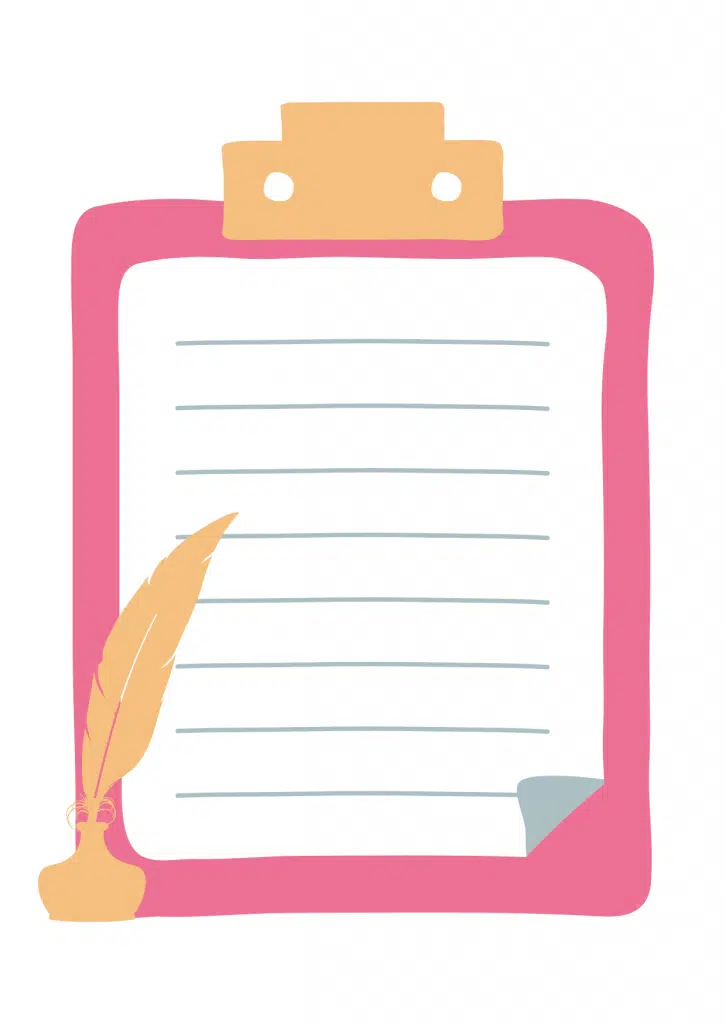

Preparation
Planning will enable you to prepare your answer effectively. You can do this by writing down some notes in bullet point form.
This will enable your answer to have a clear structure (a beginning, middle and end).
A plan should be for rough notes only – so don’t spend too long on it!
Read the question carefully and multiple times. It may help to highlight key words in the question to answer it fully!
Writing Effectively and Clearly
Look for any mistakes on spelling or grammar. Also the clarity of writing – make sure it can be understood. These areas make up 40% of the mark!
Use full sentences and paragraphs
Make sure that you answer the full question
Read through your answer to make sure it has a logical flow and that the points you have made add up and make sense
Checking your answer is helpful to ensure you are writing clearly and effectively.
Check that you have:
- Answered both questions in the paper
- Used different sentence types
- Used an appropriate amount of detail
Sophisticated Vocabulary Phrases
Using sophisticated vocabulary in your exam will help you to communicate effectively.
For contrast:
- (Something) differs from/contrasts with (something else)
For similarities:
- (Something) is similar to/is comparable to (something else)
- Similarly/Likewise/In the same way
For patterns:
- What is striking/What stands out/What can be seen clearly is…
For cause and effect:
- (Something) may cause/can lead to/ can result in…
- Resulting from/Stemming from…
- Thereby, therefore, consequently, because of this
For moving on:
- In this next section/I will continue/In the section that follows…
- As explained earlier/As previously stated/As I mentioned earlier/As was pointed out…
- Turning to/Moving on now to consider/Before thinking about (something), it is important to think about/Having discussed (something), I will now talk about…
For beginning:
- I will argue that/discuss/analyse/explore/assess…
For discussing a source:
- The writer highlights/mentions/questions whether/draws our attention to…
For concluding:
- Overall/Considering all of this evidence/Taken together/Collectively…
Example: Question
”You recently went on a school trip to a theme park. The head of year has asked you to write a review of the day out which will be published in the school newsletter.
In your review, you should:
- Say what you liked or disliked about the trip
- Say how and why the trip could have been improved
- Explain whether you should go back to the theme park or go somewhere different for the next school trip
Aim to write about 250 to 300 words (Level 2)
(25 marks)
Aim to write about 200 to 250 words (Level 1)
Example: Answer

Example: Analysis of Answer
- Clear structure
Paragraphs about each bullet point in the same order
- Correct punctuation
Use of commas, exclamation marks, colons, full stops, full sentences
- Good use of connectives and organisational markers
‘consequently’, ‘however’, ‘therefore’
- Word count
Between the suggested amount
- Lots of sentence types
- Wide range of tenses
present (‘I believe’), past (‘I enjoyed’ + more) and future (‘I will be able to’ + more)
- Writing is easy to follow and reads well
- Writing is relevant to the question
Covers each bullet point adequately
Additional Resources
Exam Tips Cheat Sheet
FS Level 2Writing: The Exam Worksheet and Example Questions
Writing: The Exam L2
FS Level 2NewOfficial PFSWriting: The Exam L1
FS Level 1NewOfficial PFSRevision Products
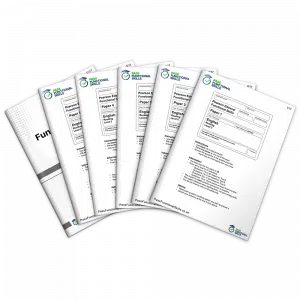
Functional Skills English Level 2 Practice Papers
This comprehensive set of 10 Functional Skills English Level 2 Practice Papers (5 reading papers + 5 writing) is a great way to revise for your upcoming reading and writing exams. These papers have been specifically tailored to match the structure, format and question types used by each of the main exam boards for functional skills English.
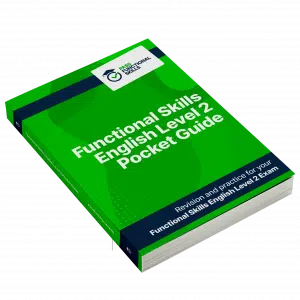
Functional Skills English Level 2 Book
Revise and practice for your functional skills English level 2 exam. All topics covered in this compact functional skills English level 2 book.
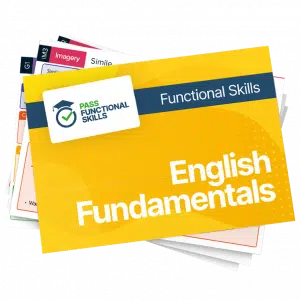
Functional Skills English Level 2 Revision Cards
Revise for functional skills English level 2, with these English level 2 fundamentals revision cards. Covering the building blocks of the essential areas of the level 2 exam.







